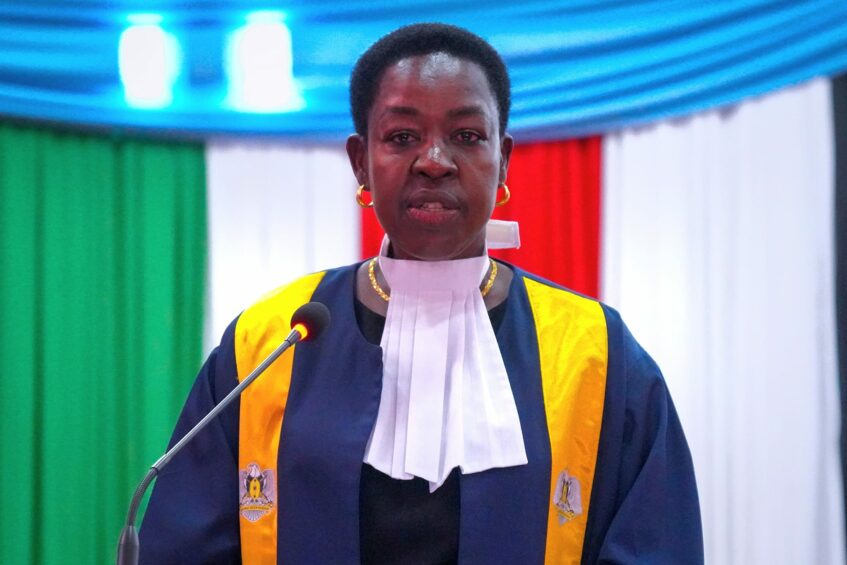
Speaker Jemma Nunu Kumba. (Office of the President).
The Speaker of the National Parliament has emphasized on judicial reforms including non-interference of other government bodies in the judiciary system to ensure its independence.
Jemma Nunu Kumba was speaking at a consultation meeting of the Judicial Reform Committee in Juba on the weekend.
Nunu said the judicial system in South Sudan must be impartial and reformed to eradicate some provisions inherited from Sudan to restore public confidence.
“The judiciary system we have, we inherited it from Sudan. We need to look into our system and do some reforms,” she said.
“Talking about what can be done to make our judiciary system, requires that the judiciary should be free without any intervention from any branch of government so that we can achieve the rule of law and access to justice by our citizens.”
The lawmaker also said the country’s justice system must be free from corruption.
“Regarding corruption, there should be an anti-corruption measure to address the issue of corruption in the judiciary to maintain the integrity of the judiciary system.”
“This may involve reviving laws related to court procedure and judiciary ethics and organizing the judiciary we need also to build public trust and confidence in the judiciary.”
Established in 2022, the Judicial Reform Committee is tasked with reviewing relevant laws, advising on judicial reforms, and restructuring the Judiciary to enhance its effectiveness.
On his part, Justice James Ogoola, the Chairperson of the Judicial Reform Committee says the body is reviewing the national laws after conducting consultations with different stakeholders.
“We said we need to engage the people of South Sudan in this effort. It’s their judiciary and they should have a voice on how this reform should be done.”
“We have talked to many sectors of professors as lawyers, doctors, banks, and academics and judges themselves and majestic and business community and we engaged women and youth and trade union and cattle keepers and chiefs in the countryside. We are finally in the stage to engage the decision-makers.”
South Sudan Chief Justice Chan Reec Madut said recently it was embarking on reforms including making English the official language of trial in the judicial system in accordance with the transitional constitution.
According to International Commission of Jurists, the legal profession in South Sudan is fragmented between lawyers of differing education and legal systems.
According to the ICJ report, this is between advocates with a civil law and Sharia background (mainly trained in Arabic in Sudan), and lawyers and legal practitioners trained in the diaspora under a variety of legal systems.
Support Eye Radio, the first independent radio broadcaster of news, information & entertainment in South Sudan.
Make a monthly or a one off contribution.
Copyright 2024. All rights reserved. Eye Radio is a product of Eye Media Limited.